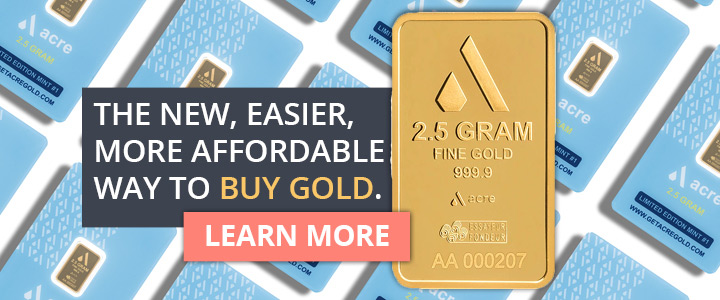Gold options
More seasoned investors might consider an option on a gold futures contract. Like any financial option, these represent the right — but not the obligation — to buy or sell an asset (gold in this case) at a specific price during a specified window of time. You can buy an option to bet on whether gold’s going up or going down, and if the market moves the opposite way, all you’ve lost is the small amount you’ve paid for the option.
Gold options trade on a division of the Chicago Mercantile Exchange (CME) known as COMEX. Gold options can be bought on gold bullion or on gold ETFs.
Pros and cons of gold securities
Like any financial asset, gold securities have both benefits and drawbacks.
Advantages of gold securities
Along with some of the general benefits of gold ownership, securities offer:
- Liquidity. Trading as they do on major exchanges, gold securities are obviously easier to buy and sell than bullion. No storage costs, either — aside from any management or account fees your broker or fund manager might charge.
- Compounded returns. While dividends offered by miners are typically average at best, they are greater than no dividends at all, which is what you get from physical gold. And there is also the possibility of appreciation in the share price.
- Low initial investment. The most cost-efficient way to invest in general, mutual funds and ETFs let you in on the game at a far lower cost. With the spot price of an ounce of gold around $2,000, $180 for a share of the SPDR Gold Shares ETF (GLD) — equal to 1/10th of an ounce of gold — is, well, spot on.
Drawbacks of gold securities
- Volatility. Just as with any company, a miner’s operating costs, reserves, and management all play a factor in its performance. As a result, shares prices tend to be more volatile: If bullion sinks 10%, gold stocks often plummet 15%. Miners definitely “have a higher speculative aspect to them,” says investment strategist Lyn Alden, who follows precious metals and currencies.
- Systematic risks. A gold mining company’s share performance also reflects in political and economic conditions in its native country. Some of the biggest operations are in Africa, Russia, and Latin America — places that have known their share of turbulence and are often avoided by socially responsible and institutional investors.
- You don’t own gold. Gold securities are less of a pure play. They represent physical gold but you don’t have the right to redeem them for the actual metal. So they don’t provide the protection against a paper currency or financial market meltdown that the metal itself does.
The financial takeaway
So, should you go for the gold? Though it usually becomes part of the conversation during times of economic crisis or political uncertainty, gold as part of your portfolio makes sense anytime — as a diversifier of your holdings, if nothing else.
But how much to invest, and what form to invest in, depends on your own tolerance for risk and desire for convenience.
Find the original article here: https://www.businessinsider.com/how-to-invest-in-gold




